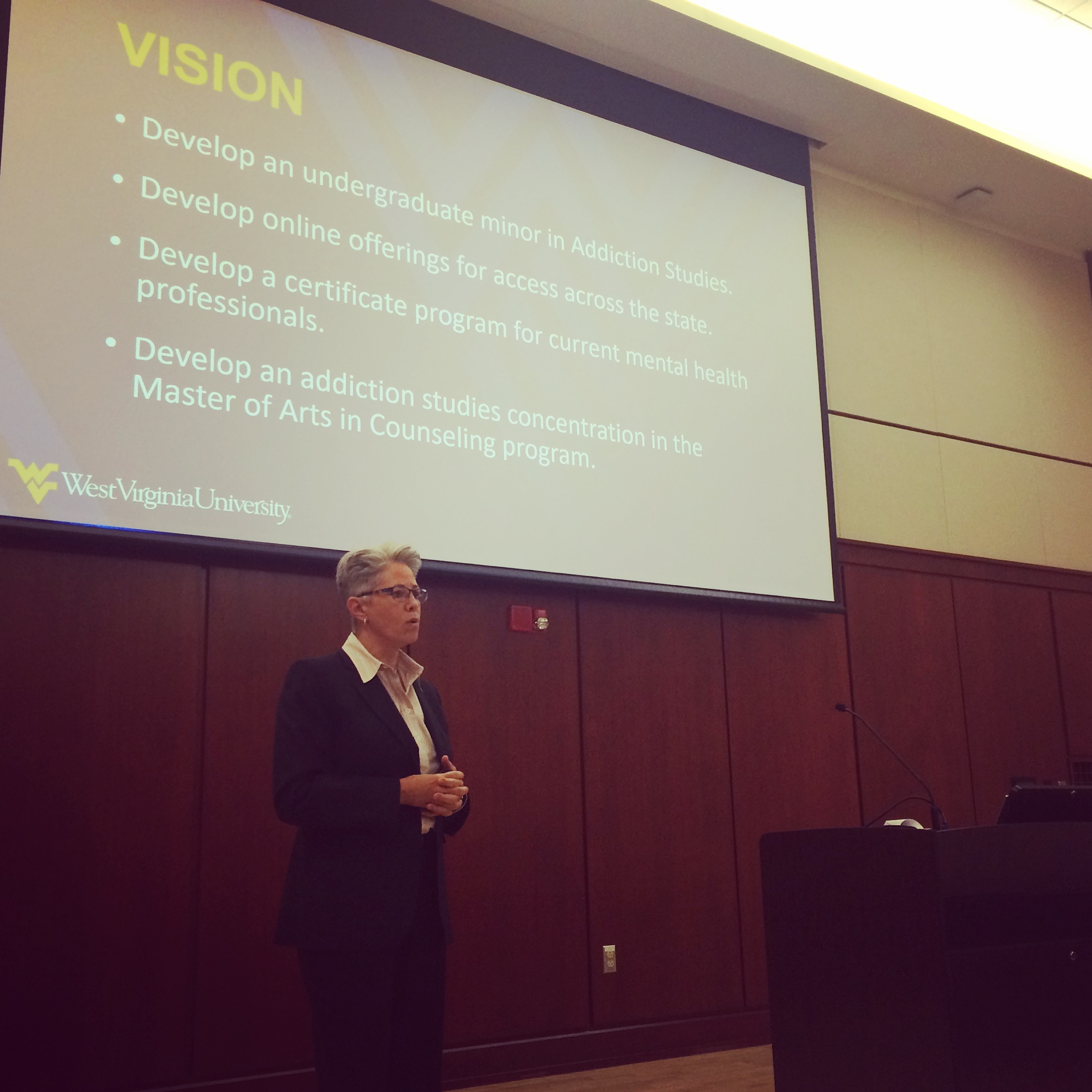MORGANTOWN, W.Va. — Faculty of West Virginia University and WVU Hospitals provided their expertise Monday for the university’s third annual Academic Media Day.
This year’s event focused on the state’s opioid epidemic, covering all facets from prevention and treatment to mortality and economic effects.
“This is the third year for this event where we bring together researchers across the university to talk about the various things going on that folks might not know about,” said John Bolt, senior executive director of communications. “They’ve been very successful, I think, in helping get the word out about the various ways that WVU can help you.”
Speakers at the event included staff from the College of Education and Human Services, the College of Business and Economics, the Department of Forensic and Investigative Science, WVU Rockefeller Neuroscience Institute and WVU School of Medicine.
“It’s not just about one part,” Bolt said. “This issue permeates society, so we wanted to bring together as many different disciples as possible to talk about the different things that they are doing.”
Marc Haut, professor and chair of the Department of Behavioral Medicine and Psychiatry, felt the topic was appropriate for this year’s Academic Media Day.
“It’s one of the biggest problems that our state faces, and unfortunately we lead the nation in all of the bad outcomes — overdose deaths, infectious disease rates, neonatal abstinence syndrome. We have to address this, and as a land-grant institution, we have to be in front of this and working on this. It’s our obligation and what we must do.”
The day also served as a great opportunity to share what innovations and advancements are occurring at WVU’s School of Medicine when it comes to substance use disorders.
“There are clearly advancements that have been made using medications. There’s also advancements being made with psychological aspects of treatment that are important also,” Haut said. “There is hope that people can get better. We have people who get better all the time.”
Haut has seen successful treatment firsthand through the university’s own treatment program.
“You look at a person who has been in there for less than 90 days, and things are a struggle for them,” he said. “Then there are people who have been part of our treatment program for 10 years now who could be anybody that you see on the street, living their life, working their life and having a sense of purpose. Seeing those outcomes is what keeps everyone going and motivated because you do get positive outcomes.”
Since joining WVU’s School of Medicine in the early 1990s, Haut has seen great progress already in tackling substance use disorders.
“The biggest change that I’ve seen is the acceptance and the decrease in the stigma associated with it,” he said. “It’s more accepted, and because it’s more accepted, people are more willing to come forward and accept treatment and be involved in treatment.”
However, patients are not the only ones who benefit from society’s acceptance of substance use disorders.
“Providers are more willing to work in this area because it’s more accepted and they’re not shunned for actually providing the treatment also,” Haut said.
Other presentations included staff of WVU Hospitals, the Department of Counseling, Rehabilitation Counseling and Counseling Psychology, the West Virginia University Rockefeller Neuroscience Institute and WVU’s Bureau of Business and Economic Research.
“It really has to be a collaborative effort because there are so many things that come together with this problem that we have to fix,” Haut said. “If you think about the economics, that’s really important because that’s a driving problem for the state.
“If you think about treating the individuals, you can’t just think about individuals. You have to think about the people and the families that are affected, whether it’s the children of the people who are using or not,” he said. “You have to think bigger picture like that definitely.”
During his keynote speech, Haut said that the Mountain State’s unique culture that West Virginians care about all of West Virginia can be a tremendous benefit when it comes to fixing the state’s opioid epidemic.
“It’s really a pretty unique thing that I see in this state that I haven’t seen in other places is that people are willing to come together to address this problem for the sake of taking care of their neighbors, helping their neighbors and therefore helping the whole state,” he said. “It’s pretty unique to us. You don’t see that often in other places, whether they’re urban or rural, that kind of commitment, and I think tapping into that is something that will give us a really good outcome.”

